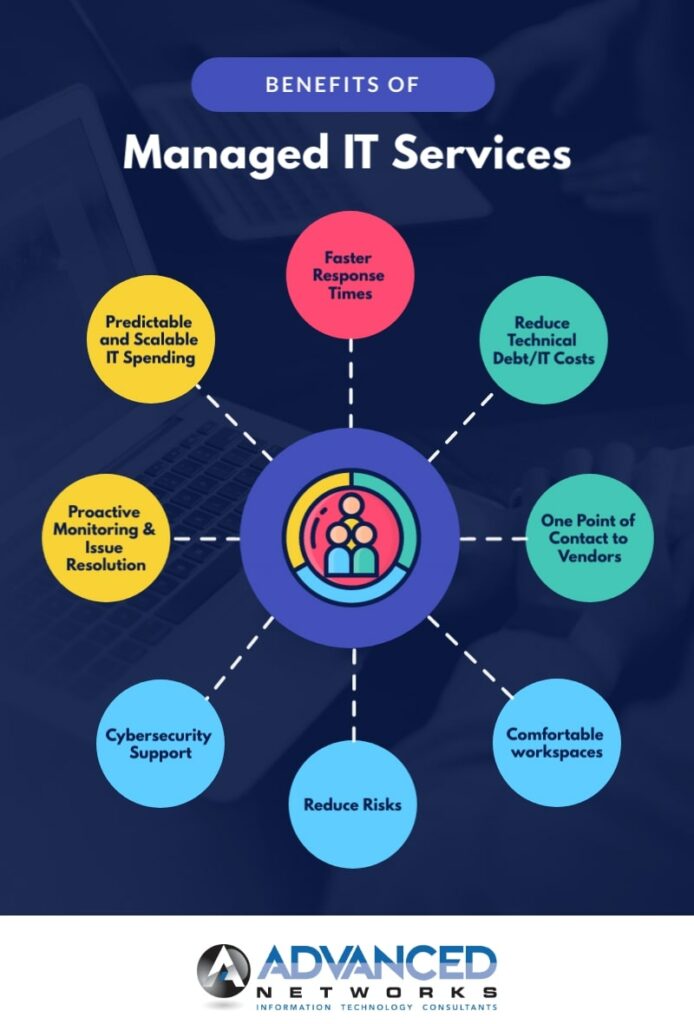Managed IT Services: Upcoming Trends and New Developments

Within the current fast evolving digital landscape, companies are increasingly dependent on technology to power their operations and enhance their competitiveness. As organizations navigate the complexities of IT management, the demand for managed IT services continues to rise. These services offer a way to streamline processes, boost efficiency, and allow organizations to concentrate on their core goals without the weight of day-to-day IT issues.
Looking ahead, the future of managed IT services is set for significant transformation. New technologies, such as AI and machine learning, are positioned to play a pivotal part in how these services are provided. Additionally, with the rise of remote work and cloud computing, managed IT service providers will have to innovate continuously to meet the changing needs of their customers. This article examines the forthcoming trends and innovations in managed IT services, showcasing how these developments will define the industry of IT management and support for companies worldwide.
New Innovations in Outsourced IT
The environment of professional IT solutions is ever adapting, driven by advancements in tech that promise to boost efficiency and provide increased benefits to clients. One notable development is the integration of AI intelligence and machine learning into professional IT solutions. These technologies enable forecasting analytics, which helps businesses foresee potential problems before they occur, allowing for anticipatory management of IT infrastructure. By leveraging AI, IT service providers can optimize performance and minimize downtime, thereby increasing overall customer contentment.
Another area of expansion is the growing adoption of cloud computing solutions. As companies seek adaptability and scalability, professional IT solutions that include multi-cloud strategies are becoming crucial. This method allows organizations to distribute tasks across multiple cloud environments, balancing performance and cost-effectiveness. Managed IT providers are now focusing on cloud management solutions that streamline this process, allowing clients to manage the complexities of cloud integration and ensuring a smooth transition to cloud-based systems.

Furthermore, data security continues to be a primary concern for businesses of all sizes. As threats evolve, professional IT solutions are integrating advanced cybersecurity mechanisms, including zero trust architectures and machine learning threat detection systems. These advancements help businesses bolster their security against a growing array of cyber threats while ensuring compliance with industry standards. The future of professional IT solutions will increasingly rely on intelligent security solutions that can adjust to new threats and safeguard sensitive information.
A Shift to Cloud-Based Services
The evolution of supervised IT services is substantially influenced by the growing adoption of cloud computing. Companies are quickly transitioning their tasks to cloud infrastructures to take advantage of enhanced flexibility, scalability, and cost efficiency. This transition allows companies to utilize cloud-based applications and services without the burden of maintaining their individual infrastructure. As a result, managed IT service providers are adjusting their offerings to incorporate broader cloud solutions, enabling clients to optimize their operational effectiveness.
Cloud services bring about a revolution in how supervised IT services are offered. Providers are currently focusing on hybrid environments, allowing clients to seamlessly merge various cloud solutions while still keeping some in-house systems. This approach meets different business needs, guaranteeing that organizations can choose the best resources for specific projects. Such flexibility also necessitates managed IT service providers to enhance their expertise in cloud technologies, making them invaluable partners in managing this complex landscape.
Moving ahead, the future of managed IT services will greatly revolve around cutting-edge cloud solutions. As advancements like artificial intelligence and ML become prominent, these will be merged into cloud environments to boost data management and operational efficiencies. Moreover, managed IT from Parried.com on safety within cloud services is growing paramount as threats change. Managed IT service providers must remain ahead of these trends to help customers secure their cloud infrastructure while enhancing the advantages of their IT investments.
Enhancing Cyber security Measures
As digital threats continue to evolve, managed IT services are upgrading their cyber security measures to defend organizations from increasingly complex attacks. This requires the integration of advanced technologies such as artificial intelligence and machine learning to identify anomalies and respond to threats in real time. The focus is placed on proactive strategies that not only spot vulnerabilities but also mitigate risks before they can be taken advantage of.
Furthermore, IT service providers are prioritizing developing comprehensive incident response plans. These plans are crucial for reducing damage in the event of a security breach. By conducting regular security assessments and pen-test, they ensure that their defenses are evaluated and strengthened continually. This preparation helps organizations react quickly to incidents, reducing potential downtime and financial losses.
In addition, the rise of telecommuting has prompted managed IT services to adopt comprehensive security frameworks that accommodate a dispersed workforce. Solutions such as zero-trust models are becoming popular, ensuring that all network access is monitored and authenticated rigorously. By adjusting their cyber security measures to meet the challenges of a fluid work environment, managed IT services are more equipped to protect their clients' sensitive data and ensure business continuity.
